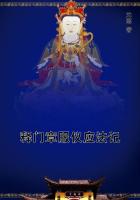Religious feeling, coupled with a system of firm dogmatic beliefs, was the mainspring of his whole career, a guiding light in perplexities, a source of strength in adverse fortune, a consolation in sorrow, a beacon of hope beyond the disappointments and shortcomings of life.He did not make what is commonly called a profession of religion, and talked little about it in general society, though always ready to plunge into a magazine controversy when Christianity was assailed.But those who knew him well knew that he was always referring current questions to, and trying his own conduct by, a religious standard.He was a remarkable example of the coexistence together with a Christian virtue of a quality which theologians treat as a sin.He was an exceedingly proud man, yet an exceedingly humble Christian.With a high regard for his own dignity and a keen sensitiveness to any imputation on his honor, he was deeply conscious of his imperfections in the eye of God, realizing the sinfulness and feebleness of human nature with a medieval intensity.The language of self-depreciation he was wont to use, though people often thought it unreal, was the genuine expression of his sense of the contrast between the religious ideal he set up and his own attainment.And the tolerance which he extended to those who attacked him or who had (as he thought)behaved ill in public life was largely due to this pervading sense of the frailty of human character, and of the inextricable mixture in conduct of good and bad motives."It is always best to take the charitable view," he once observed in passing through the division lobby, when a friend had quoted to him the saying of Dean Church that Mark Pattison had painted himself too black in his autobiography--"always best, especially in politics."This indulgent view, which seemed to develop in his later years, was the more remarkable because his feelings were strong and his expressions sometimes too vehement.There was nothing in it of the cynical "man of the world" acceptance of a low standard as the only possible standard, for his moral earnestness was as fervent at eighty-eight as it had been at thirty.Although eminently accessible and open in the ordinary converse of society, he was in reality a reserved man; not shy, stiff, and externally cold, like Peel, nor always standing on a pedestal of dignity, like the younger Pitt, but revealing his deepest thoughts only to a very few intimate friends, and treating all others with a courteous friendliness which, though it put them quickly at their ease, did not encourage them to approach any nearer.Thus, while he was admired by the mass of his followers, and beloved by the small inner group of family friends, the great majority of his colleagues, official subordinates, and political or ecclesiastical associates felt for him rather respect than affection, and would have hesitated to give him any of friendship's confidences.It was regretfully observed that though he was kindly and considerate, would acknowledge all good service, and gladly offer to a junior an opportunity of distinction, he seldom seemed sufficiently interested in any one of his disciples to treat him with special favor or bestow those counsels which a young man so much prizes from his chief.But for the warmth of his devotion to a few early friends and the reverence he always paid to their memory, a reverence touchingly shown in the article on Arthur Hallam which he published in 1898, sixty-five years after Hallam's death, there might have seemed to be a measure of truth in the judgment that he cared less for men than for ideas and causes.Those, however, who marked the pang which the departure to the Roman Church of his friend Hope Scott caused him, those who in later days noted the enthusiasm with which he would speak of Lord Althorp, his opponent, and of Lord Aberdeen, his chief, dwelling upon the beautiful truthfulness and uprightness of the former and the sweet amiability of the latter, knew that the impression of detachment he gave wronged the sensibility of his own heart.Of how few who have lived for more than sixty years in the full sight of their countrymen, and have been as party leaders exposed to angry and sometimes dishonest criticism, can it be said that there stands on record against them no malignant word and no vindictive act!
This was due not perhaps entirely to natural sweetness of disposition, but rather to self-control and to a certain largeness and dignity of soul which would not condescend to anything mean or petty.Nor should it be forgotten that the perfectly happy life which he led at home, cared for in everything by a devoted wife, kept far from him those domestic troubles which have soured the temper and embittered the judgments of not a few famous men.
Reviewing his whole career, and summing up the impressions and recollections of those who knew him best, this dignity is the feature which dwells most in the mind, as the outline of some majestic Alp moves one from afar when all the lesser beauties of glen and wood, of crag and glacier, have faded in the distance.As elevation was the note of his oratory, so was magnanimity the note of his character.
The favorite Greek maxim that no man can be called happy till his life is ended must, in the case of statesmen, be extended to warn us from the attempt to fix any one's place in history till a generation has arisen to whom he is a mere name, not a familiar figure to be loved, opposed, or hated.Few reputations made in politics keep so far green and fresh that men continue to read and write and speculate about the person when those who can remember him living have departed.Out of all the men who have played a leading part in English public life in the present century there are but seven or eight--Pitt, Fox, Canning, Wellington, Peel, O'Connell, Disraeli, perhaps Melbourne and Brougham--who still excite our curiosity.The great poet or the great artist lives longer--indeed, he lives as long as his books or his pictures; the statesman, like the musician or the actor, begins to be forgotten so soon as his voice is still, unless he has so dominated the men of his own time, and made himself a part of his country's history, that his personal character becomes a leading factor in the course which events took.Tried by this test, Mr.Gladstone's fame seems destined to last.His eloquence will soon become merely a tradition, for his printed speeches do not preserve its charm.His main acts of policy, foreign and domestic, will have to be judged by their still unborn consequences.If his books continue to be read, it will be rather because they are his than in respect of any permanent contribution they have made to knowledge.But whoever follows the annals of England during the memorable years from 1843 to 1894 will meet his name on almost every page, will feel how great must have been the force of an intellect that could so interpenetrate the events of its time, and will seek to know something of the wonderful figure that rose always conspicuous above the struggling throng.
There is a passage in the "Odyssey" where the seer Theoclymenus, in describing a vision of death, says: "The sun has perished out of heaven." To Englishmen, Mr.Gladstone has been like a sun which, sinking slowly, has grown larger as he sank, and filled the sky with radiance even while he trembled on the verge of the horizon.There were able men, and famous men, but there was no one comparable to him in power and fame and honor.Now he is gone.The piercing eye is dim, and the mellow voice is silent, and the light has died out of the sky.
End















